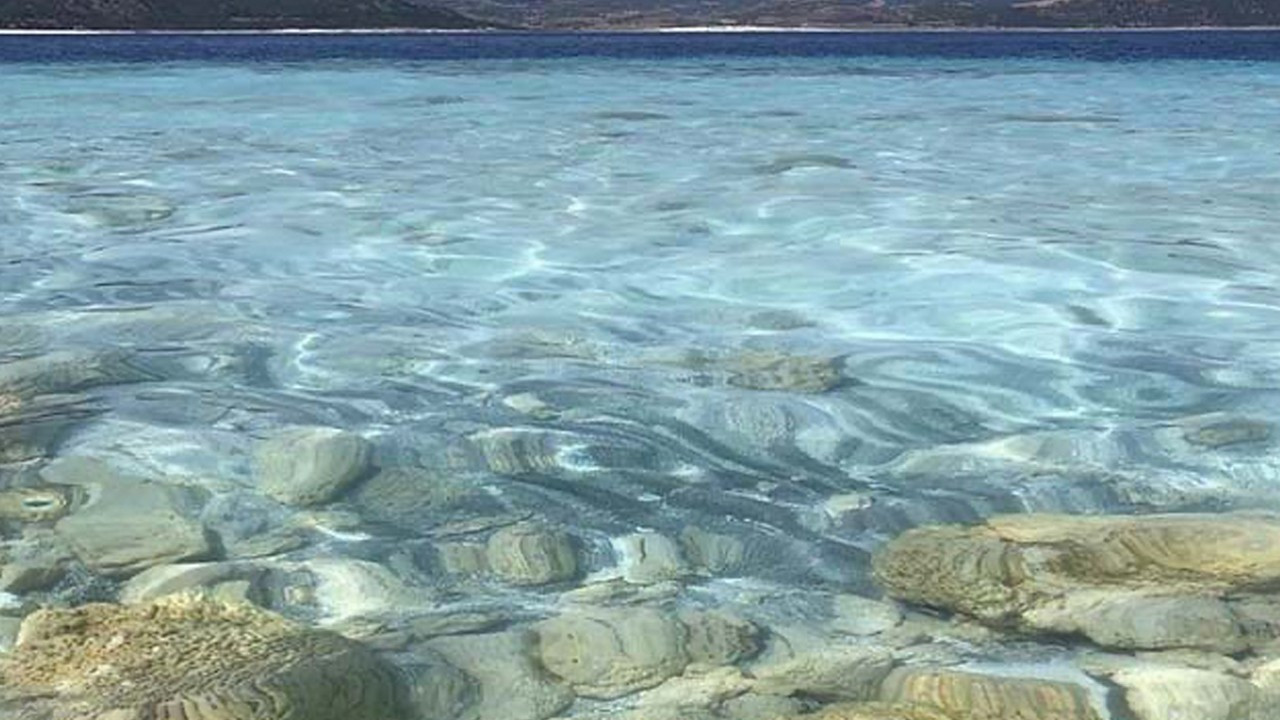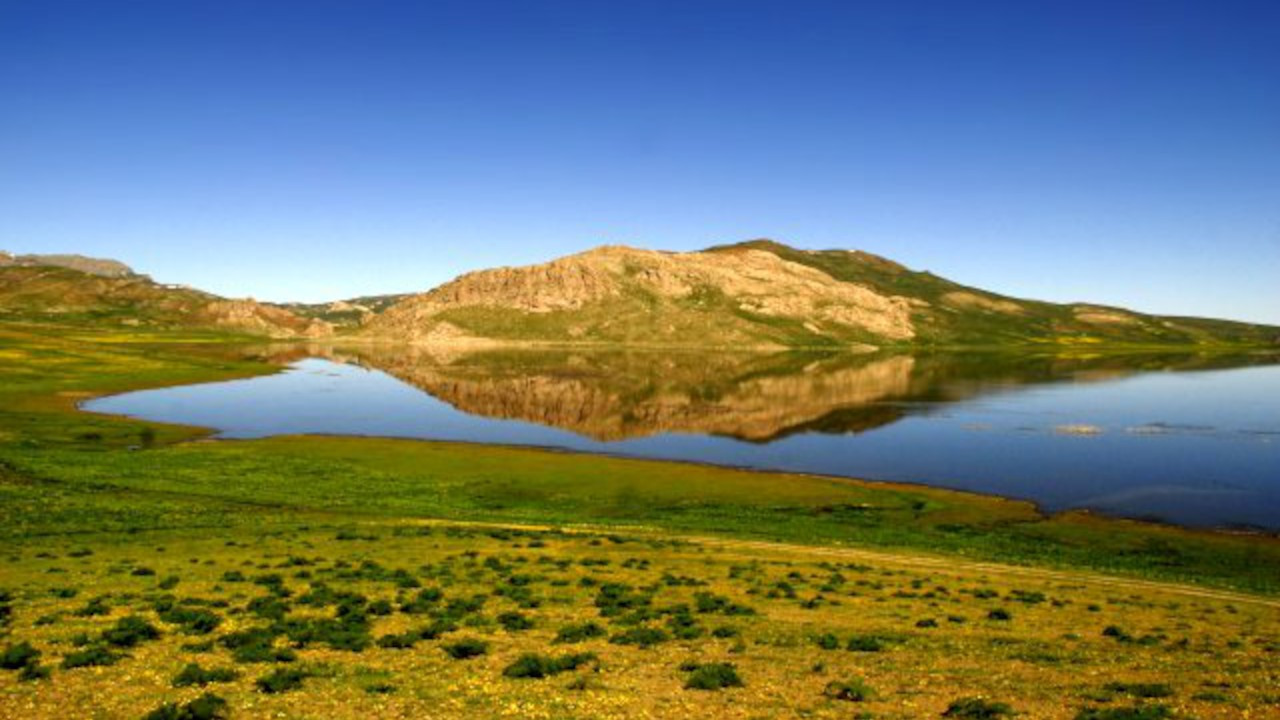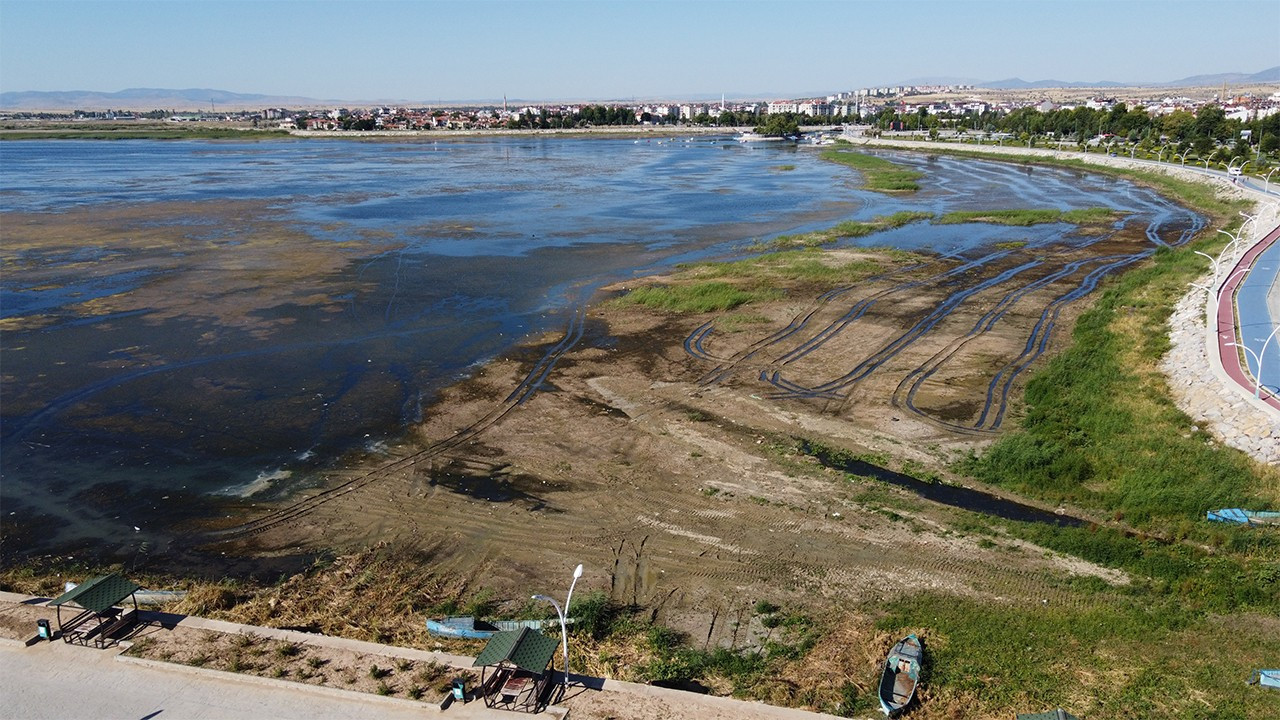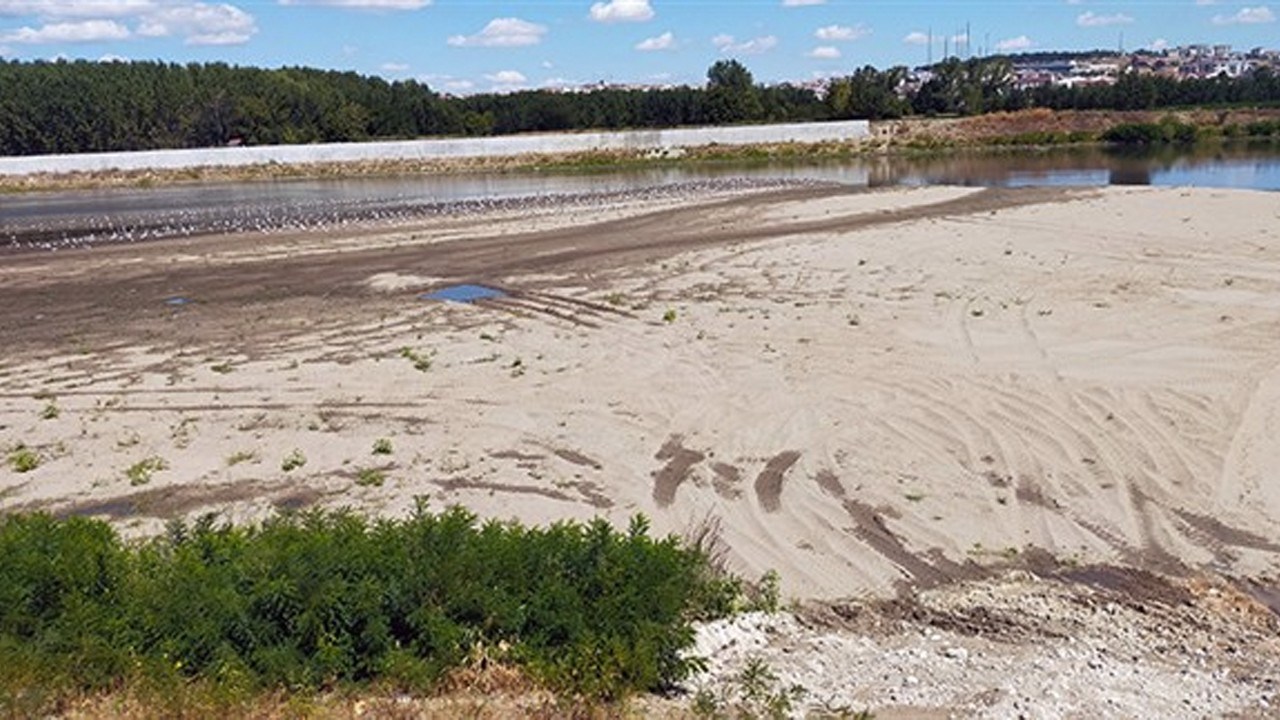Turkey's iconic Salt Lake shrinks amid drought
Turkey's iconic Salt Lake, the second-largest lake in the country, has been shrinking due to rising temperatures. The lake level marked a decrease of 35 percent from 1987 to today, said Prof. Hatim Elhatip from Aksaray University.
Anadolu Agency
Turkey's Salt Lake, one of the world's premier nesting grounds for many species including flamingoes, has been shrinking due to drought caused mostly by global warming.
The Salt Lake, located some 150 kilometers from the capital Ankara, spans 1,665 square km and is one of the largest hyper-saline lakes in the world.
However, both natural crises such as rising temperatures around the globe and human-made factors including excessive use of water lead to more droughts each day.
Professor Hatim Elhatip, from Aksaray University Department of Environmental Engineering, has pointed at the water level of the lake and said:
"The lake level dropped from around 92,000 hectares in 1987 to 35,000 hectares today. It means 35 percent of shrinking," he said.
The Salt Lake protected area is within the borders of three provinces namely Ankara, Konya, and Aksaray.
Pointing to the significance of rainfall, the professor said, "Central Anatolian region gets the least rainfall in Turkey, and unfortunately our city, Aksaray, gets the least rainfall in the region."
Global warming and climate change have direct effects on water scarcity, experts say. With rising temperatures, the Earth is warming, and rainfall patterns are changing.
"Currently, due to global warming and drought in water resources in the world, water used per capita has decreased to 1,750 cubic meters, and if it gets down to 1,000 cubic meters, then it is called water poverty," Elhatip said.
"By 2025, according to the Turkish Statistical Institute, Turkey might be among the countries with water scarcity," he warned.

 NASA posts photo of 'Turkey's Maldives' threatened by state constructionEnvironment
NASA posts photo of 'Turkey's Maldives' threatened by state constructionEnvironment Drought and development threaten future of 2,700-year-old lake in eastern TurkeyEnvironment
Drought and development threaten future of 2,700-year-old lake in eastern TurkeyEnvironment 60 percent of Turkey's lakes dried up as a result of severe droughtEnvironment
60 percent of Turkey's lakes dried up as a result of severe droughtEnvironment Rivers in western Turkey suffer from severe drought, pollutionEnvironment
Rivers in western Turkey suffer from severe drought, pollutionEnvironment